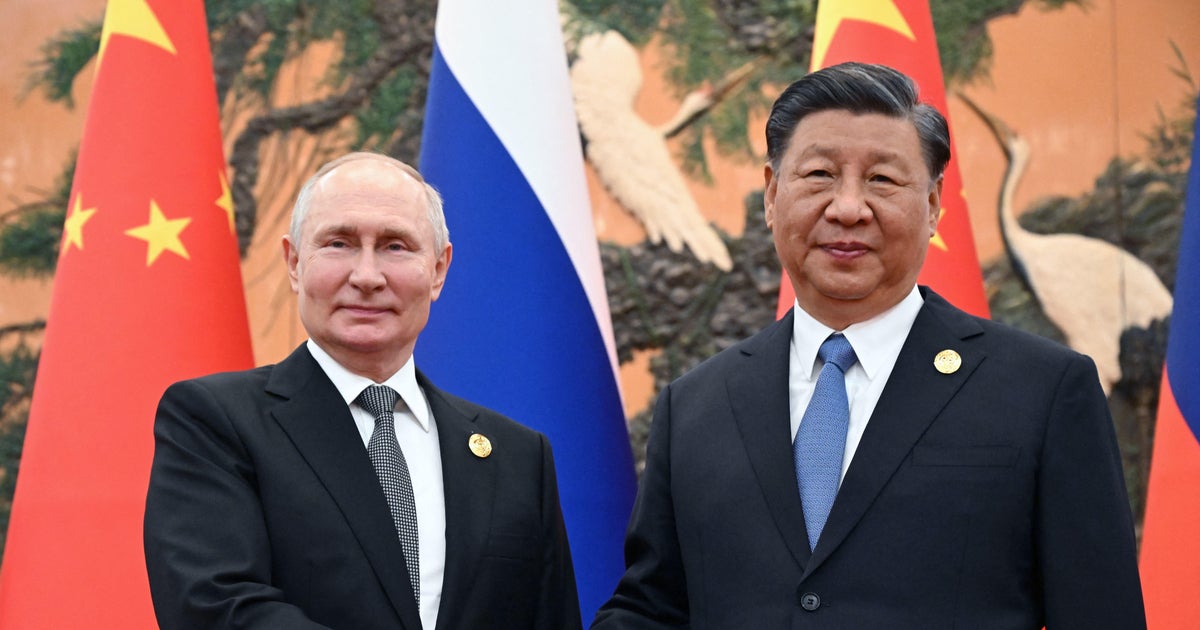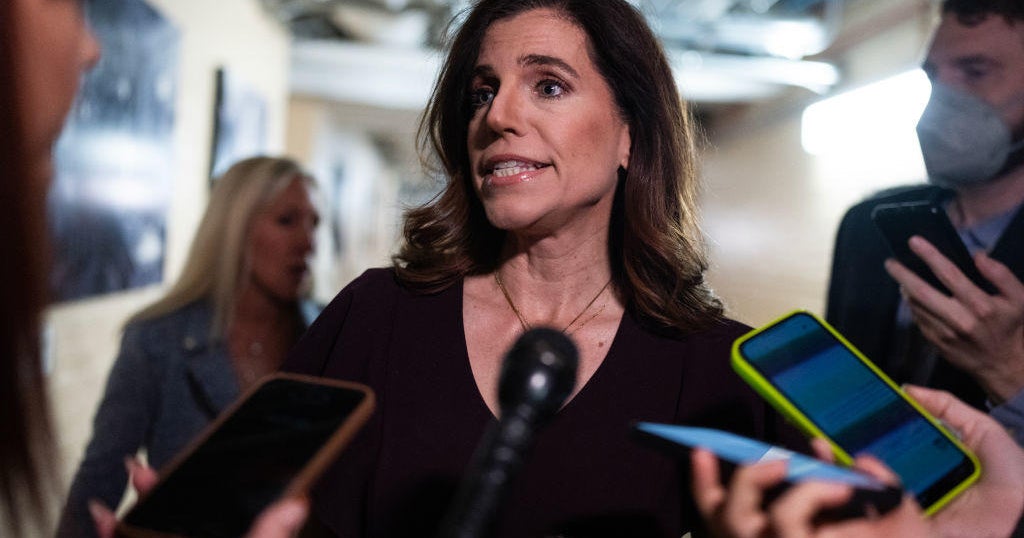CBS News
Ohio backs off proposed restrictions on gender-affirming care for adults

Ohio Gov. Mike DeWine’s administration on Wednesday backed off its plans to impose rules that advocates feared would have restricted gender-affirming medical treatment for adults in a way no other state has.
The rules proposed by two state departments would have required psychiatrists, endocrinologists and medical ethicists to have roles in creating gender-affirming care plans for clinics and hospitals. Patients under 21 would have been required to receive at least six months of counseling before starting hormone treatment or receiving gender-affirming surgery.
The Department of Health and the Department of Mental Health and Addiction Services both issued revised proposals Wednesday after gathering public comment. Both said in memos that they were swayed by what they had learned as transgender people and care providers weighed in. The Health Department said it received 3,900 comments. In the new versions, the rules would apply only to the care of minors, not adults.
In a statement, DeWine’s office said the governor was seeking “administrative rules where there was consensus.”
“Governor DeWine has been focused on protecting children throughout this debate,” the statement said. “The changes reflect his focus on these priorities while reflecting the public comments received by the agencies.”
Over the last few years, 21 states have adopted laws banning at least some aspects of gender-affirming care for minors. Some are so new they haven’t taken effect yet, and a ban in Arkansas was struck down in court. But so far, only Florida has restricted care for adults.
The Ohio departments said the rules will now advance to the next step of review before being implemented.
The draft rules would still require that patients under 18 receive at least six months of mental health counseling before they can receive gender-affirming medications or surgeries. The revisions made Wednesday also expand the list of mental health professionals qualified to provide the required counseling, adding clinical nurses, social workers, school psychologists and some physicians.
Further, a medical ethicist would no longer be required to have a role in developing facility-wide treatment plans for the care. In a memo, the Health Department said that change was made partly because institutions already use medical ethics professionals to develop policies.
Some parts of the rules regarding care for minors could have a muted effect. Last month, the Legislature banned gender-affirming surgeries and hormone therapies for minors by overriding DeWine’s December veto of that measure, which would allow children already receiving treatment to continue.
That law will take effect in April.
CBS News
China continues nuclear buildup, has strengthened ties to Russia, Defense Dept report says

China is continuing its nuclear expansion, is strengthening its ties with Russia, and has increased military pressure against Taiwan over the past year, according to a new Defense Department report that examines actions accelerating key areas of conflict with the U.S.
The report, released Wednesday, also noted that the recent rash of corruption allegations within China’s powerful Central Military Commission, which oversees the People’s Liberation Army, is hurting Beijing’s military growth and could slow its modernization campaign.
A senior defense official said China has made progress in some of its programs but slid back in others.
The official, who spoke on condition of anonymity to describe the U.S. assessment, warned that Beijing is working toward developing a more diverse and technologically sophisticated nuclear force. While the expected number of nuclear warheads has maintained consistent growth, China is broadening its targeting abilities.
Beijing is going to be able to go after more and different types of targets, do greater damage and have more options for multiple rounds of counterstrikes, the official said. The U.S. is urging China to be more transparent about its nuclear program, while also warning that America will defend its allies and take appropriate steps in response.
According to the report, which provides the annual U.S. assessment of China’s military power and is required by Congress, By mid-2024, China had over 600 operational nuclear warheads, and the Pentagon expects it will have more than 1,000 by 2030. The Pentagon’s estimate of China’s current stock of nuclear warheads is about 100 higher than disclosed in last year’s report, but that is a reflection in the change in the estimate, not the pace of production.
The Biden administration has worked to maintain a balance with China, building up the U.S. military presence in the Asia-Pacific region to be ready to counter Beijing while also encouraging increased communications between the two countries at the diplomatic and military levels.
That uptick in talks has coincided with a decrease in coercive and risky intercepts of U.S. aircraft since late 2023, compared with the previous two years. China still, however, does what the U.S. military considers “unsafe” flights near American and allied forces in the region.
The Pentagon’s national defense strategy is built around the assessment that China poses the greatest security challenge for the U.S., and the threat from Beijing influences how the U.S. military is equipped and organized for the future.
Corruption within the PLA has resulted in the ouster of at least 15 high-ranking officials in a major shakeup of China’s defense establishment.
“This wave of corruption touches every service in the PLA, and it may have shaken Beijing’s confidence,” the report said.
In June, China announced that former Defense Minister Li Shangfu and his predecessor, Wei Fenghe, were expelled from the ruling Communist Party and accused of corruption. Last month, another senior official, Miao Hua, was suspended and put under investigation, according to China’s Defense Ministry.
The U.S. report points to a persistent increased military presence by China around Taiwan, the self-governing island that China claims as its own. It said China’s navy has been in the region more and that there have been increased crossings into the island’s air defense identification zone and major military exercises in the area.
Just last week, a large deployment of Chinese navy and coast guard vessels in the waters around Taiwan triggered alarm as Taiwanese officials said it looked like China was simulating a blockade. Officials have said there were as many as 90 ships involved in what Taiwan described as two walls designed to demonstrate that the waters belong to China.
Taiwan split from communist China in 1949 and has rejected Beijing’s demands that it accept unification. China says it will do so by force if necessary, and leaders have said they want to be ready to do so by 2027.
The United States is obligated under domestic law to help defend Taiwan and give it weapons and technology to deter invasion.
The island democracy has been the chief source of tension between Washington and Beijing for decades and is widely seen as the most likely trigger for a potentially catastrophic U.S.-China war.
More broadly, the report concluded that the PLA continued its drive to develop greater military capabilities but “made uneven progress toward its 2027” milestone for modernization.
One area of expansion, the report said, is with unmanned aerial systems, which officials said are “quickly approaching U.S. standards.”
Regarding Russia, the report said China has supported Russia’s war against Ukraine and sold Russia dual-use items that Moscow’s military industry relies on. Dual use items can be used for both civilian and military purposes.
contributed to this report.
CBS News
Ben Schwartz and James Marsden on returning for “Sonic the Hedgehog 3”

Watch CBS News
Be the first to know
Get browser notifications for breaking news, live events, and exclusive reporting.
CBS News
House Ethics Committee quietly voted to release Matt Gaetz ethics report

Washington — The House Ethics Committee has quietly voted to release its report on the investigation into former Rep. Matt Gaetz regarding allegations of sexual misconduct and obstruction, two sources familiar with the matter said, reversing course after Republicans originally blocked its release.
The report will likely be unveiled in the coming days, after the final votes of the 118th Congress, the sources said. Lawmakers face a Friday deadline to approve new government funding and avoid a shutdown before heading home for the holidays. CNN first reported on Thursday that the committee voted behind closed doors to release the report earlier this month.
House Republicans recently blocked two Democratic resolutions that would have compelled the Ethics Committee to release the potentially damaging report on its investigation into Gaetz, voting to refer the matter back to the committee.
Gaetz resigned from Congress shortly after President-elect Donald Trump said he planned to nominate Gaetz to be attorney general in November. But Gaetz soon withdrew from consideration, facing a likely contentious confirmation process. Gaetz has said he does not intend to take the oath of office for the same seat in the 119th Congress, and is launching a new show on the pro-Trump One America News Network in January.
It’s highly unusual, but not unprecedented, for the House Ethics Committee to release a report on a member who is no longer in office. Congressional leaders, including some Democrats, have expressed concerns about the precedent set by unveiling the Gaetz report.
In June, the committee released a statement saying it was investigating allegations against Gaetz that included sexual misconduct, illicit drug use, and bribery.
Multiple sources at the time told CBS News that four women had informed the Ethics Committee that they had been paid to go to parties that included sex and drugs, and that Gaetz had also attended. The committee has Gaetz’s Venmo transactions that allegedly show payments for the women.
Gaetz has repeatedly denied wrongdoing and has called the committee’s investigation a “frivolous” smear campaign.
Some of the sexual misconduct allegations under review by the committee were the subject of a previous Department of Justice probe into Gaetz. Federal investigators sought to determine if Gaetz violated sex trafficking and obstruction of justice laws, but no charges were filed.







